Federal Election Commissioners Welcome Each Other's Hate
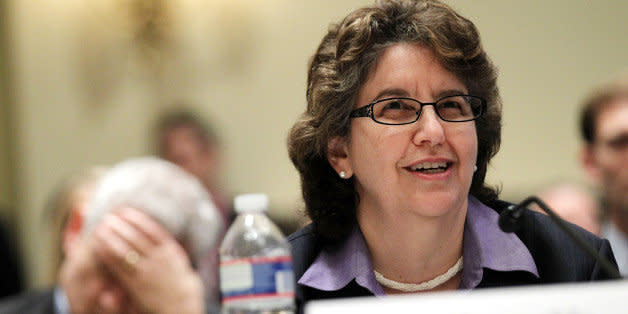
WASHINGTON -- Nobody thought the monthly meeting held Thursday by the Federal Election Commission would turn one commissioner to ponder the existential question of whether she was, indeed, a real person. But nothing is out of the realm of possibility in the government’s most dysfunctional and acrimonious body.
The commissioners were supposed to address an unusual petition filed by commissioners Ann Ravel and Ellen Weintraub to tackle the issue of undisclosed “dark money” in elections -- unusual because no petition had ever been filed by a sitting commissioner acting in her role as a private citizen. And the three conservative commissioners wanted to make sure that the simple consideration of whether to publish the petition in the Federal Register for public comment was even more unusual.
After the petition was introduced, Vice Chair Matthew Petersen, a conservative commissioner, asserted that the petition should not be heard or even printed by the commission, as federal procedure rules state that a federal official does not qualify as a person able to file a petition.
From there, the commission fell into a rabbit hole of animosity that revealed how deeply these people don’t like one another.
Love HuffPost? Become a founding member of HuffPost Plus today.
“First of all, let me say that I cannot believe that you are actually going to take the position that I am not a person,” Weintraub said with an exasperated smile on her face. “I find that a corporation is a person, but I'm not a person.”
“You want to insist that I am not a person,” she continued.
Petersen replied, “That’s right.”
“That's how bad it has gotten,” Weintraub said. “My colleagues will not admit that I am a person. That's really striking.”
Weintraub raised an example of a government official filing an FEC petition in the case of Rep. Chris Van Hollen (D-Md.), who filed a petition regarding commission regulations on the disclosure of donors to certain independent advertisements.
After some back and forth over the definition of a person under the Administrative Procedure Act, Weintraub and Commissioner Caroline Hunter soon found themselves arguing about who was the worse communicator.
“I asked the question if you were going to have a problem with this, and I got sort of an 'I don't know' and we're still talking about it,” Weintraub said. “And I just -- I'm having a hard time believing that all of this was concocted and that you guys weren't thinking this through before close of business yesterday. You know, if -- I actually did reach out to try and find out if you were going to have a problem and I wish that you would have just said that so that, you know, we would have known what we were walking into today.”
Hunter eventually responded, “I find it comical that we got an email from a staff lawyer who works with, I believe with the chair, I'm not sure, and attached is a rule-making petition on behalf of chair Ravel and commissioner Weintraub -- that is sent on June 8th, exactly 11 a.m. And then one of the Republican commissioners got an email from the USA Today -- on the very same day, June 8th, at 11:15 a.m. Wanted to get thoughts on this petition from Ravel and Weintraub and she includes a link to a story that she has already written on the petition. So, the first notice that we even -- we had no idea that this petition was being drafted. We found out first from the email that I said on June 8th at 11 a.m. and the story was already written by 11:15 a.m. So, so much for, you know, giving people a heads up and worrying about giving them time to talk about things.”
This argument soon turned to a debate over whose memory was better about whether the two had consulted each other on issues about campaign-super PAC coordination and other issues that were before the commission at different times.
Commissioner Steve Walther attempted to calm the commission down. He stated both his support for many ideas in the petition submitted by Ravel and Weintraub, as well as his discomfort with commissioners petitioning their own oversight body.
“And until we're willing to tolerate each other's views, our rule-making process is a farce,” Walther said. “I think we have to actually listen. Everybody here has a right in rule-making to have their views heard. When that happens, I think you'll find that we can make some rules available to the public for consideration. And in this particular case, it's -- to me, it is a call for help.”
After taking a break that lasted much longer than the stated two minutes, the commission returned to vote on a motion to postpone consideration of whether to post the petition for public comment until July.
A unanimous vote kicked the can one month down the road and left the public in the same place it was before -- with no rules to govern the increasing amount of undisclosed campaign spending in federal elections.
Senator Sherrod Brown (D-Ohio)
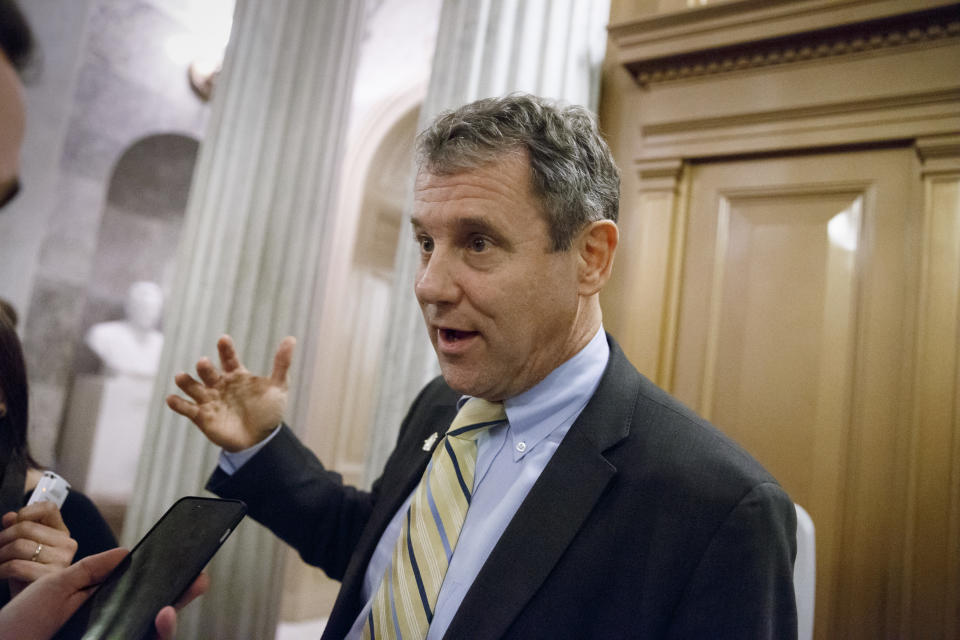
Senator Elizabeth Warren (D-Mass.)

Senator Bernie Sanders (I-Vt.)
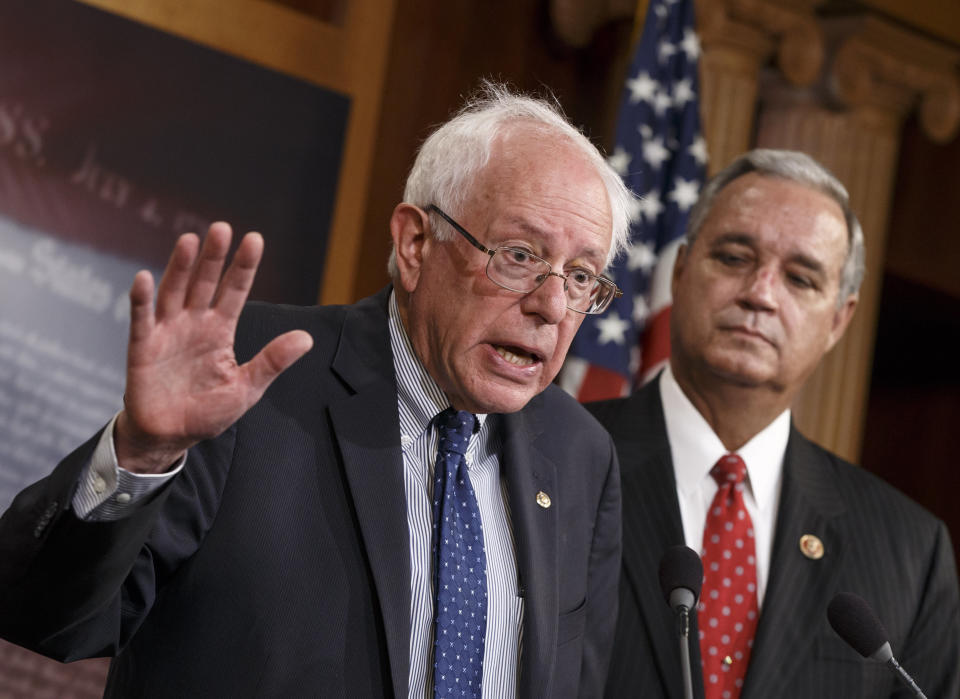
Senator Jack Reed (D-R.I.)
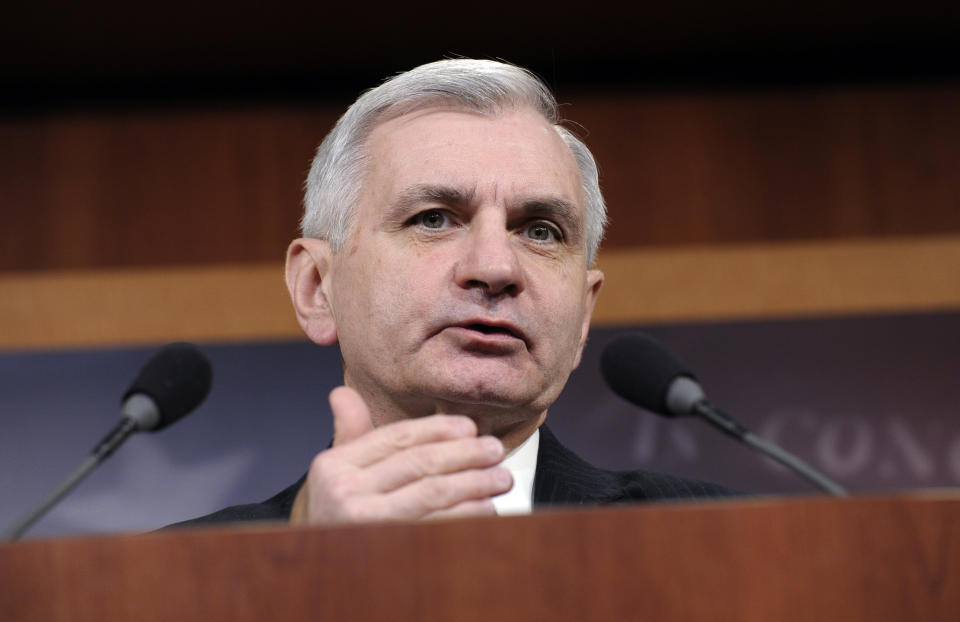
Senator Elizabeth Warren (D-Mass.)
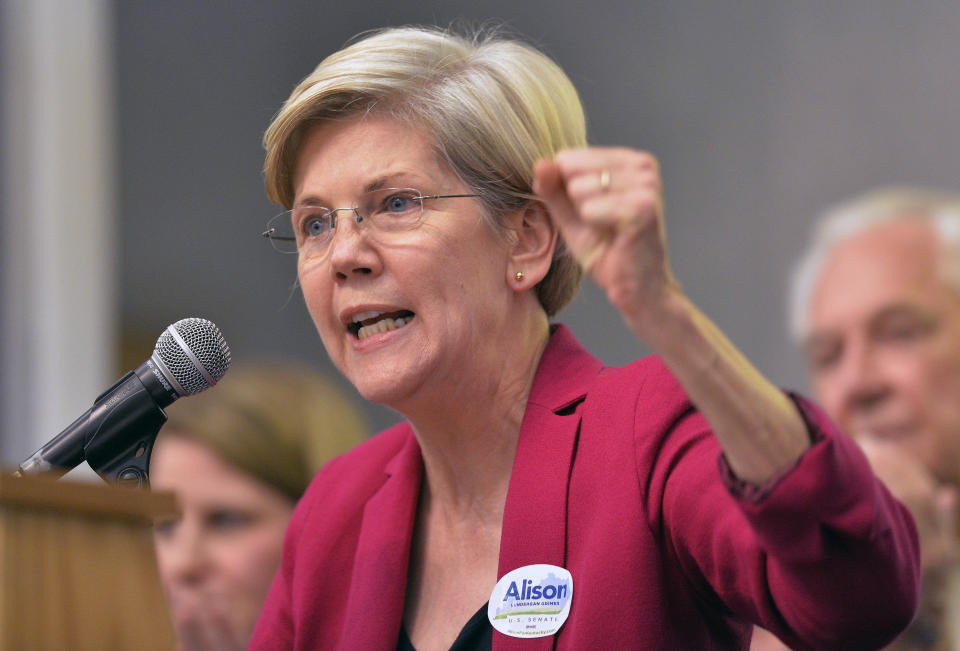
This article originally appeared on HuffPost.

